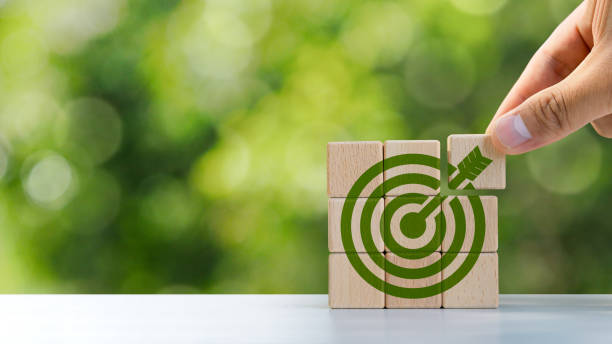
Unlocking You Potential: A Deeper Look at Personal Development Goals
Personal Development Goals
In today’s world, the expression of becoming the best version of myself is more than just a cool thing to say it’s mandatory. No matter if you want to get a better job, gain mental clarity, or have closer relationships, Personal Development Goals can serve as a roadmap to get you there. And they’re not just abstract concepts of “doing better,” but deliberate, measurable goals that steer your life in new directions.

The point is to be specific with your goals and stick with them. Long-term personal transformation is an incremental process of making small meaningful changes. From the initial commitment to start getting up earlier to the more ambitious plans to switch careers or learn a new skill, followed by parentheses, serve as mile markers charting your progress.
Why Personal Development Goals Matter More Than Ever
When nothing is going the way you want or you feel stuck, engaging Personal Development Goalscan bring some direction. These goals give you a reason to wake up in the morning and offer a cause that’s bigger than everything else. More than that, they increase self-awareness, compel you to push to — and beyond — your limits (both real and imagined), and reflect a broader, cultural trend to understand ourselves in unprecedentedly intimate ways. Progress, not perfection, is the thing here.
When you have a clear set of attainable Personal Development Goals you can monitor growth and adjust strategies accordingly. As opposed to the quick motivation highs, these goals help develop habits that are the basis for sustained progress. Whether it’s setting aside time for reading, taking up public speaking, or having a heart-to-heart about emotions, the journey is individual, and life-changing in every sense of the word.
The science of setting goals
Behavioral psychologists have always said the best way to direct behavior is goal-setting. Once you get your Personal Development Goals on paper you brain will treat them as actionable. Goals that are effective typically are cast using the SMART criteria—Specific, Measurable, Achievable, Relevant, Time-bound. Wanting to be better at time management isn’t good enough.
A more effective goal would be: “I will use a time-tracking app every day for the next 30 days to pinpoint and cut distractions. This level of precision transforms one’s abstract intention into a concrete, achievable goal. What’s more, making small gains along the journey releases dopamine, which in turn reinforces the inclination to keep going.
How to Establish and Align You.
The first element in establishing Personal Development Goals is reflection. Examine deeply the distance between where you are in life and the life you hope for. Determine areas of skill, mindset, habit, or lifestyle that are or can be an issue. You keep putting things off. Struggling with discipline? Experiencing burnout? Once you’ve outlined the pain points, turn them into challenge-oriented goals. Next, consider alignment. Your LPW Personal Development Goals should reflect your vision and values for your life.
For example, if you do analytical work but highly value creativity, a development goal might be scheduling a creative project within your day to counter-act your thinking energy. The alignment makes sure your growth isn’t only in service of other’s needs but also your own fulfillment.
Key Areas to Set Personal Development Goals
Career Growth
For those just beginning in their professional journey or aspiring to move into a leadership role, career-focused Personal Development Goals can help you advance to your career goals. This could mean obtaining a new certification, becoming an expert with project tools, or developing better interpersonal communication.
Emotional Intelligence
It’s important for personal as well as work relationships to be able to know how you feel, deal with it, and comprehend how others feel. A professional development goal here might be to meditate daily or read one book per month about emotional awareness.
Financial Literacy
Knowing how to handle money, investments, and debt is a life skill that provides stability and freedom. Establish goals like participating in finance workshops, reading up on investment strategies or making, and sticking to, a budget.
Physical Health
Your mind influences your body. Personal Development Goals about it concerning your physical health might be, you know, creating a consistent workout routine, looking at the quality of your diet, making sure you’re getting enough sleep each night.
Learning and Education
Lifelong learning is crucial. It could be through formal education, or it might be on one’s own, the aim being to finish an online course once every quarter, or spend 30 minutes every day on developing skills.
Time Management
Time is the only thing you canno get it back. Making the most of it can significantly enhance productivity. Leverage goals such as establishing a daily routine or using time-blocking methods, or cutting down your screen time by 20%.
Transforming Intentions into Habits
One of the most difficult things is to keep going. The magic? It’s in making your Personal Development Goals into habits. Habits cut down the friction of having to make decisions and the progress feels easy over time. And tools like habit trackers, accountability partners, and regular reflection sessions can help you stay on track. And finally, don’t forget to feel victorious about small victories. Recognizing those achievements along the way is ego-boost and morale-raising, these are also ways to make sure you have high motivation so that the goal-abandonment-slump doesn’t hit.
Getting past the things that hold you back and hinder your personal development
Every path is strewn with obstacles. One wall is their terror of failure. To overcome this, reframe how you look at failure: failure as feedback. Every misstep is data that can be used to recalibrate. A frequent problem is the lack of a consistent style. The thing is, life gets hard and time gets away from you, but you may find (as I do) that Personal Development Goals a little all the time is generally all we really need; it tends to have more impact being a long-term pursuit than a short-term one.
Even just 10 minutes a day toward a specific objective pays off in the long run after a couple of months. And finally, measuring yourself against others can be the obstacle. Everyone’s journey is unique. Concentrate on your own metrics, your own growth, and your own pace.
The Role of Mentoring and Community
The kind of friends you keep could help you bloom faster. Mentors provide their knowledge from having already gone down the same paths and can guide you from making the same mistakes. You are grounded and accountable through the support of the community as well. Participating in forums, masterminds or even challenges is a way to create a community and get some support. Personal Development Goals, when EDITED and REINFORCED by others are more achievable and fulfilling.
Assessing and Refining Your Goals throughout Time
Preferences and situations are dynamic, and you should hovme the Personal Development Goals from time to time and update the chart as you live and learn. What worked for you a year ago may be out of sync with your current reality.” Schedule monthly or quarterly reviews to see how things are moving, adjust the timing, or turn on a dime if necessary. Evolution isn’t a missed success — it’s a form of growth. An active goal-setting process ensures your progress is meaningful and motivating.
Real-Life Instances of the Transformative Personal Development Goals
Take, for example, someone who has struggled with anxiety in social settings. It was by creating their own exposure traumas — first, they said hello to strangers, then hung out in small groups, then eased into some public speaking — that their confidence blossomed.

Another is someone who is a professional feeling trapped in a midlevel job. By setting measurable goals, such as earning a leadership certificate, developing conflict resolution abilities, and networking strategically, they earned a promotion in just one year. These are not isolated stories. With the right approach, you’re Personal Development Goals) can bring genuine, life-changing results.
Conclusion: Creating a Life Worthy of You
At its heart, the quest for Personal Development Goals is about forging a life worth living. It’s the choice to step out of autopilot and into agency. These goals enable you to approach adversity with resilience, and act with greater definition and intention. The (sometimes very long) path is intensely personal, but the (monumentally rewarding) results are universally inspiring—self-assuredness, competence, and happiness. Begin with one goal. Commit to it. Track your progress. Adjust when needed. And don’t forget, personal development isn’t a race, but a lifestyle.
FAQs
How best to keep up with Personal Development Goals?
Instead, break them in to small, micro-goals, and track your success. Leveraging technology in the form of habit trackers and scheduled reminders can greatly improve consistency.
Can Personal Development Goals be good for mental health?
Absolutely. Goals related to self-care, mood management, and stress reduction can not only change mood now but also improve mental well-being in the longer term.



